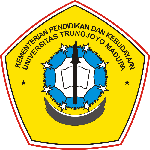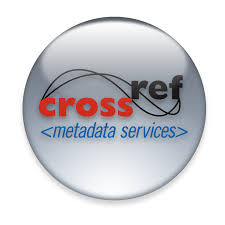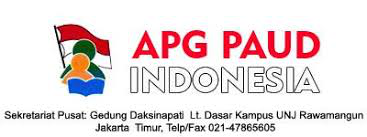Early Childhood Education Teachers' Perceptions of the Use of Artificial Intelligence Technology
Abstract
This research aims to explore the perceptions of early childhood education teachers regarding the use of artificial intelligence (AI) technology to answer the challenges of current developments in theera of society 5.0. This research uses a descriptive qualitative approach, and data collection through literature reviews and surveys given to 103 respondents from early childhood education teachers. Next, all the data collected from the literature review and survey results are analyzed to be described. The research results show that more than half of the respondents admitted that they were not familiar with or even had not implemented AI technology, especially in supporting more interesting learning in the classroom. Some other respondents who have been familiar with and implemented AI applications such as Canva, social media and Google Search stated that AI applications have been proven to provide great benefits in increasing children's engagement and learning experiences. Most respondents showed a positive attitude towards this technology and were willing to adopt it in classroom learning if provided with sufficient training and support. This research suggests that there is a need for collaboration between existing stakeholders, namely the government, educational institutions and the community to provide adequate training and technological facilities to ensure the effective implementation of AI in early childhood education. In this way, it is hoped that AI can enrich the learning experience for young children while also being able to answer the challenges of current developments in the era of society 5.0.
Keywords
Full Text:
PDFReferences
Abimanto, D. (2023). Efektivitas Penggunaan Teknologi AI Dalam Pembelajaran Bahasa Inggris (Vol. 2, Issue 2).
Amalia, N. F., & Munif, M. V. M. (2023). Tantangan dan Upaya Pendidikan dalam Menghadapi Era Society 5.0. MAANA: Jurnal Pendidikan Islam Anak Usia Dini, 2(1), 1–13. https://doi.org/10.52166/mjpiaud.v2i1.4741
Anwar, R. N. (2023). Implementation Of Hybrid Learning In Islamic Religious Education. Proceeding: Internasional Seminar Implementation of Religious Moderation In Islamic Studies, 135–140
Anwar, R. N. (2024). Pelatihan Pengenalan Artificial Intelligence (AI) untuk Meningkatkan Kompetensi Guru padaTransformasi Digital. Journal of Smart Community Service(JSCS), 2(1), 28–36. https://journal.cahyaedu.com/index.php/jscs/article/view/43/28
Asbara, N. W., Agunawan, A., Latief, F., Nurani, N., Ifani, A. Z., Deviv, S., Nianty, D. A., Mahendra, Y., & Wulandari, T. (2024). Penerapan Ai Sebagai Alat Bantu Proses Pembelajaran Di Tingkat Pendidikan Sekolah Dasar. JMM (Jurnal Masyarakat Mandiri), 8(1), 831. https://doi.org/10.31764/jmm.v8i1.20083
Aslan, A. Y. V., & Arnadi. (2024). Penggunaan Kecerdasan Buatan untuk Personalisasi Pengalaman Belajar. Jurnal Ilmu Pendidikan Dan Kearifan Lokal (JIPKL), 4(5), 369–380.
Daulay, Musnar Indra., Daulay, Dahraini Hannum. 2025. Pemanfaatan Artificial Intelligence (AI) Untuk Anak Usia Dini: Jurnal homepage. (5) 1.
Fauziddin, M., & Ningrum, M. A. (2024). Symantic Literature Review : Manfaat Artificial Intelligence ( AI ) pada Pendidikan Anak Usia Dini di Indonesia. Jurnal Obsesi : Jurnal Pendidikan Anak Usia Dini, 8(6), 1475–1488. https://doi.org/10.31004/obsesi.v8i6.6236
Handoko, D., Nizamiyati, Saryoko, A., Aghata, F., Wulandari, Fahrullah, Yunita, F., Puspasari, Ii., Atho’illah, I., Asnur, P., Rahmah, S. A., Jaya, I., Siregar, A. M., Oktarino, A., Rizal, A., & Farizy,S. (2024). Artificial Intelligence Revolusi Kecerdasan Buatan. PT. Mifandi Mandiri Digital.
Kritandani, W., Aryani, R., & Rakasiwi, T. (2024). A Report Review: Artificial Intelligence and the Future of Teaching and Learning. International Research-Based Education Journal, 6(2), 245. https://doi.org/10.17977/um043v6i2p245-253
Miao, F., Holmes, W., Huang, R., Zhang, H., & Unesco. (2023). AI and education : Guidance for policymakers. https://discovery.ucl.ac.uk/id/eprint/10130180/1/Miao and Holmes - 2021 - AI and education guidance for policy-makers.pdf
Mira, L. K., Supratman, Z., & Ramadhoni, A. G. (2024). Penerapan AI dalam Pembelajaran untuk Meningkatkan Kualitas Pendidikan di SMAN 3 Bukitinggi. Jurnal Yudistira : Publikasi Riset Ilmu Pendidikan Dan Bahasa, 2(1), 277–289.
https://journal.aripi.or.id/index.php/Yudistira/article/view/434
Mukaromah, Euis. 2020. Pemanfaatan Teknologi Informasi dan Komunikasi dalam Meningkatkan Gairah Belajar Siswa: Indonesian Journal of education management & administration review, 4 (1).
Mustika, A. Y., Amalia, M. R., Aulia, M. H., Putri, N. M., Alam, N. G., Amri, S. A., Syifani, S. S., Azzahra, S. P., & Aisyah, U. K. (2024). Penggunaan Artificial Intelligence (AI) Dalam Proses Kegiatan Belajar di Mata Kuliah IPA Dasar Mahasiswa Pendidikan IPA Universitas Negeri Semarang. Jurnal Analis, 3(1), 112–122.
Riana, L. W., Amalia, S., & Annisa, N. N. (2025). Persepsi Guru PAUD Terhadap Penggunaan Teknologi Pembelajaran Berbasis Artificial Intelligence ( AI ) untuk Anak Usia Dini. Jurnal Kridatama Sains Dan Teknologi, 7(01), 10–17.
Sari, M. N., Setianti, Y., Saleh, K., & Helida Pitra, D. (2024). Peran Artificial intelligence (AI) dalam Personalisasi Proses Pembelajaran Mahasiswa di Pendidikan Tinggi. Journal on Educatio, 06(04), 20148–20157.
Solihat, R. K., & Wulandari, H. (2023). Persepsi Guru PAUD Terhadap Artificial Intelligence di Kota Purwakarta. Jurnal Golden Age, 07(02), 302–313.
Subroto, D. E., Supriandi, Wirawan, R., & Rukmana, A. Y. (2023). Implementasi Teknologi dalam Pembelajaran di Era Digital: Tantangan dan Peluang bagi Dunia Pendidikan di Indonesia. Jurnal Pendidikan West Science, 1(07), 473–480. https://doi.org/10.58812/jpdws.v1i07.542
Sugrah, N. U. (2020). Implementasi teori belajar konstruktivisme dalam pembelajaran sains. Humanika, 19(2), 121–138. https://doi.org/10.21831/hum.v19i2.29274
Suparlan. (2019). Teori Konstruktivisme dalam Pembelajaran. Islamika : Jurnal Keislaman Dan Ilmu Pendidikan, 1(2), 79–88. https://doi.org/10.24114/kjb.v7i1.10113
Wati, S., & Nurhasannah, N. (2024). Penguatan Kompetensi Guru Dalam Menghadapi Era Digital. Jurnal Review Pendidikan Dasar : Jurnal Kajian Pendidikan Dan Hasil Penelitian, 10(2), 149–155. https://doi.org/10.26740/jrpd.v10n2.p149-155
Wijaya, E. Y., Sudjimat, D. A., & Nyoto, A. (2016). Transformasi Pendidikan Abad 21 Sebagai Tuntutan. Jurnal Pendidikan, 1, 263–278. http://repository.unikama.ac.id/840/32/263-278 Transformasi Pendidikan Abad 21 Sebagai Tuntutan Pengembangan Sumber Daya Manusia di Era Global .pdf. diakses pada; hari/tgl; sabtu, 3 November 2018. jam; 00:26, wib.
Yuliani, W. (2018). Metode Penelitian Deskriptif Kualitatif dalam Perspektif Bimbingan dan Konseling. QUANTA: Jurnal Kajian Bimbingan Dan Konseling Dalam Pendidikan, 2(2), 83–91. https://doi.org/10.22460/q.v1i1p1-10.497
Zawacki-Richter, O., Marín, V. I., Bond, M., & Gouverneur, F. (2019). Systematic review of research on artificial intelligence applications in higher education – where are the educators? International Journal of Educational Technology in Higher Education, 16(1). https://doi.org/10.1186/s41239-019- 0171-0
Zebua, Rony Sandra Yofa. (2023). Fenomena Artificial Intelligence (AI). PT Sonpedia Publishing Indonesia
DOI: https://doi.org/10.21107/pgpaudtrunojoyo.v12i2.29352
Refbacks
- There are currently no refbacks.
Copyright (c) 2025 Kristin Anggraini

This work is licensed under a Creative Commons Attribution 4.0 International License.
Diterbitkan oleh:

Program Studi Pendidikan Guru Pendidikan Anak Usia Dini, Fakultas Ilmu Pendidikan
Universitas Trunojoyo Madura.
Jl. Raya Telang PO BOX 2 Kamal, Bangkalan, Jawa Timur 69162
Telp. (031)3014239/ Fax. (031)3011506









